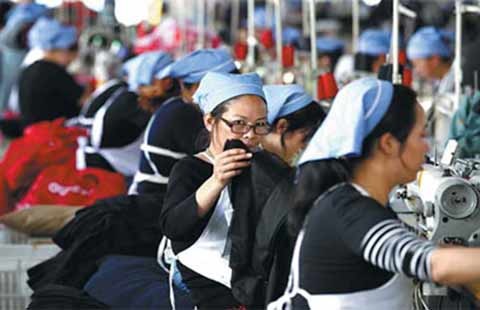S China tested by record cold temps
(Xinhua) Updated: 2013-01-08 18:51BEIJING - Governments in South China are struggling to aid the homeless and repair infrastructure due to persistent cold weather that has brought the lowest temperatures recorded in 28 years.
Shelters equipped with quilts, coats and food have opened their doors to the homeless in Hefei, capital of East China's Anhui province.
"You can find shelters and aid stations for the elderly and homeless in all communities and villages in our district," said Zou Zhongxian, a civil affairs official in the city's Luyang district.
The civil affairs bureau in South China's city of Guangzhou has also arranged 1,347 shelters for the elderly.
Massive amounts of snow blanketed Anhui's Huangshan Mountain on Tuesday, putting pressure on authorities to prevent traffic disruptions and ensure the safety of tourists.
More than 1,000 traffic officers and volunteers have worked together to clear snow and spread salt on icy roads. Drivers have been asked to put chains on their vehicle tires to prevent skids, and workers have been dispatched to check old trees that may be in danger of falling.
Maintaining power is also a concern, as regions that rely on hydroelectric power may be prone to electricity shortages during periods of icy weather, experts have warned.
An official from a State Grid branch in Hunan province said 113 power lines have frozen in the province thus far.
The National Meteorological Center said in a Tuesday statement that southern China will continue to experience snow, rain and freezing temperatures for the next few days.
The center said the severe weather will intensify starting Jan 8, with blizzards in western regions along the Yangtze and Huaihe rivers, as well as the northern part of South China.
The weather is not unlike that experienced in the winter of 2008, when freezing temperatures resulted in 129 deaths and more than 150 billion yuan ($24.2 billion) in direct economic losses.
However, experts do not expect a similar outcome for this year's winter season.
"Although the cold fronts are strong, moisture has been inadequate this year, reducing the possibility of a widespread and continuous freeze like that of 2008," said Chen Lijuan, a senior engineer at the National Climate Center under the China Meteorological Administration.
- Nation's next generation of missiles to be highly flexible
- Organ harvesting rumors slammed
- International trade corridor tested
- China's organ donation cases rise 45 percent in H1 of 2016
- Li urges top advisers to rely on broad vision
- China to strengthen regulation on real estate agencies
- Beijing garrison gets a new commander
- Diplomats vow progress on code of conduct
- Volunteers help fellow expats stay within law
- Heart disease rising; lifestyle shift blamed









